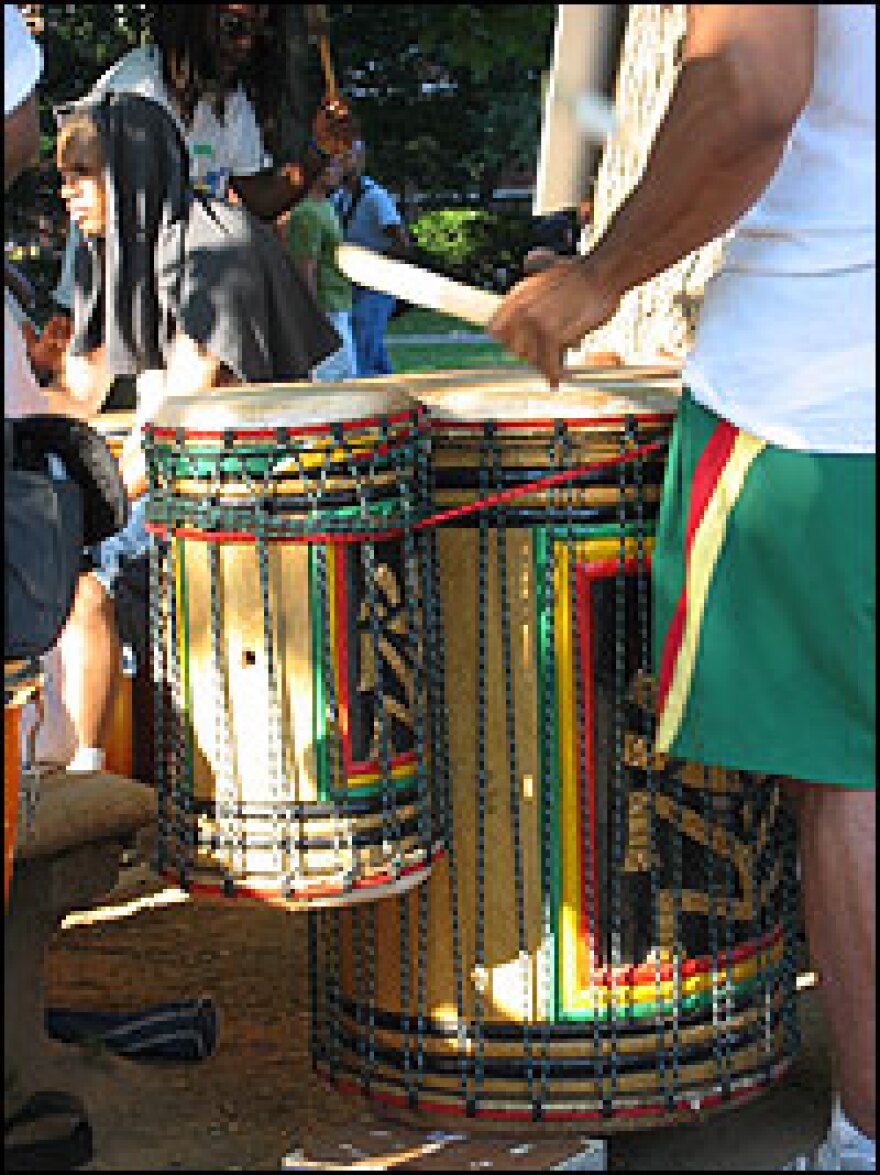
Jim Donovan was the drummer for the popular alternative band Rusted Root and has since worked on other live performance projects, such as the Drum the Ecstatic International Tour. He also leads drum workshops across the country and teaches percussion at Saint Francis University in Loretto, Penn.
Why is the drum so popular?
It's one of those kinds of instruments where you can get that immediate sense of accomplishment and satisfaction. You really don't need to spend 20 years studying technique to make a nice sound on a drum. Beyond that, there's this whole aspect of being able to play with other people and giving the individual an experience that's very community oriented. And I think that the energy and the enjoyment that people get from that is one of the biggest attractions to the drum.
Could you define a drum circle?
Some will be called a community drum circle, where there's not a whole lot of structure. Sometimes there's a facilitator that will kind of direct the group gently without giving them real specific direction. Most of the events I do involve a combination of an actual class where I teach technique. Some people do strictly traditional African drumming. There are people who do it just as therapy that are not culturally based. It's not just a bunch of people with long hair around a fire . . . .
How is drumming used as therapy?
They've done some pretty amazing research about the connection of group drumming, group musical activity, and its ability not only to relieve stress, but also in helping to increase immune system [function] and general states of well-being. The study they did was with cancer patients. They were able to deduce that, using the protocol they had developed, they were able to increase the level of immune system [function] in their cancer patients. I wouldn't go as far as saying drumming is curing cancer, but it's giving people another tool to use on their path.
What kind of drum circles do you lead?
I try to provide a nice blend of not only the cultural information, but the conceptual pieces about how you can relate playing with other people to how you work with other people in everyday life – at your job, or with family. We talk a lot about relaxation. We talk a lot about how to be present when you play, which is the opposite of multi-tasking.
Where did drumming originate?
If you look at nearly any indigenous culture around the globe, you'll find a drum or some sort of percussion instrument at the heart of the culture. Africa is special because there are so many different subcultures of styles and types of drums, so it tends to be very rich on the drumming side. Not to mention that the rhythm can be incredibly complex and beautiful. There's also quite a bit in Asia and India, South America and a lot of the drumming that went to the Caribbean and South America originated in Africa and was brought over during the time of slavery.
When did drum circles become popular in the United States?
In probably the last 12 years, there's been a really large surge in group hand-drumming. The only reason I could pinpoint is that there are a few individuals who really put a lot of energy and work into getting drums into peoples' hands. There's a gentleman named Arthur Hull who is from California and taught at the university at Santa Cruz. He was really at the forefront of bringing group drumming to a large number of people in North America. Baba Tunde Ulatungi who came from Nigeria back in the 1950s is probably one of the main people who is responsible for bringing drumming to everyday people.
Copyright 2023 NPR. To see more, visit https://www.npr.org. 9(MDM3NjYwMjA5MDE1MjA1MzQ1NDk1N2ZmZQ004))

